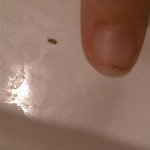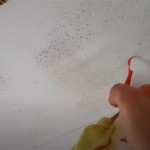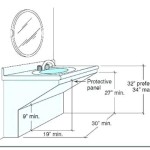How to Refinish Bathroom Cabinet Doors: A Comprehensive Guide
Bathroom cabinet doors endure constant use and exposure to moisture, leading to wear and tear over time. Refinishing them can restore their pristine appearance, enhance their functionality, and inject new life into your bathroom décor. Here's a step-by-step guide to guide you through the process of refinishing bathroom cabinet doors.
Step 1: Preparation
Begin by removing the cabinet doors from their hinges. This will allow you to work on them more easily. Lay down a drop cloth or tarp to protect the floor from paint splatters and debris. Gather all necessary materials, including sandpaper, paint stripper, spackling paste, a putty knife, and a clean cloth.
Step 2: Remove Existing Finish
Apply a generous amount of paint stripper to the surface of the cabinet door using a brush. Allow it to sit for the recommended amount of time, as per the manufacturer's instructions. Once the finish has softened, use a putty knife to scrape it off carefully. Wear gloves and eye protection during this step to avoid exposure to harsh chemicals.
Step 3: Sand and Repair
Sand the surface of the cabinet door using progressively finer grits of sandpaper (starting with 120-grit and moving up to 220-grit). This will remove any remaining paint residue and smooth out the surface. If you encounter any dents or imperfections, fill them using spackling paste and a putty knife. Allow the spackling paste to dry completely before sanding it smooth.
Step 4: Prime the Surface
Priming the surface is essential to ensure good adhesion of the new finish. Apply a coat of high-quality primer to the cabinet door using a brush or sprayer. Allow it to dry completely as per the manufacturer's instructions.
Step 5: Choose and Apply Paint or Stain
Select your desired paint or stain color. For a durable finish, opt for a paint specifically designed for bathroom use. If you prefer a natural wood look, consider staining the cabinet door. Apply thin, even coats of paint or stain using a brush or sprayer. Allow each coat to dry completely before applying the next.
Step 6: Apply Protective Finish
Once the paint or stain is completely dry, protect the finish with a clear protective topcoat. This will enhance durability and resistance to moisture. Apply a thin coat of polyurethane or a water-based topcoat using a brush or sprayer. Allow it to dry completely.
Step 7: Reinstall Cabinet Doors
Once the refinished cabinet doors are completely dry, reattach them to the hinges. Check the alignment and adjust the hinges if necessary. Step back and admire the transformed appearance of your bathroom.
Tips for Success
- Test the paint or stain on an inconspicuous area before applying it to the entire door.
- Ventilate the workspace adequately, especially when using paint strippers or other chemicals.
- Protect your hands with gloves and wear eye protection throughout the process.
- Allow ample time for each step to complete, including drying times.
- If you encounter stubborn stains or damage, consult a professional refinisher for assistance.

How To Refinish Bathroom Cabinets Diy Domestic

How To Paint Bathroom Cabinets Without Sanding 8 Vital Steps Grace In My Space

How To Paint Laminate Cabinets Love Renovations

How To Refinish Bathroom Cabinets Diy Domestic

How To Paint Bathroom Cabinets Without Sanding 8 Vital Steps Grace In My Space

How To Refinish Bathroom Cabinets Diy Domestic

How To Refinish A Bathroom Vanity Bower Power

How To Paint Bathroom Vanity Cabinets Benjamin Moore

Fluted Bathroom Cabinet Refacing Diy At Home With Ashley

How To Paint Bathroom Cabinets Diyer S Guide Bob Vila
Related Posts







